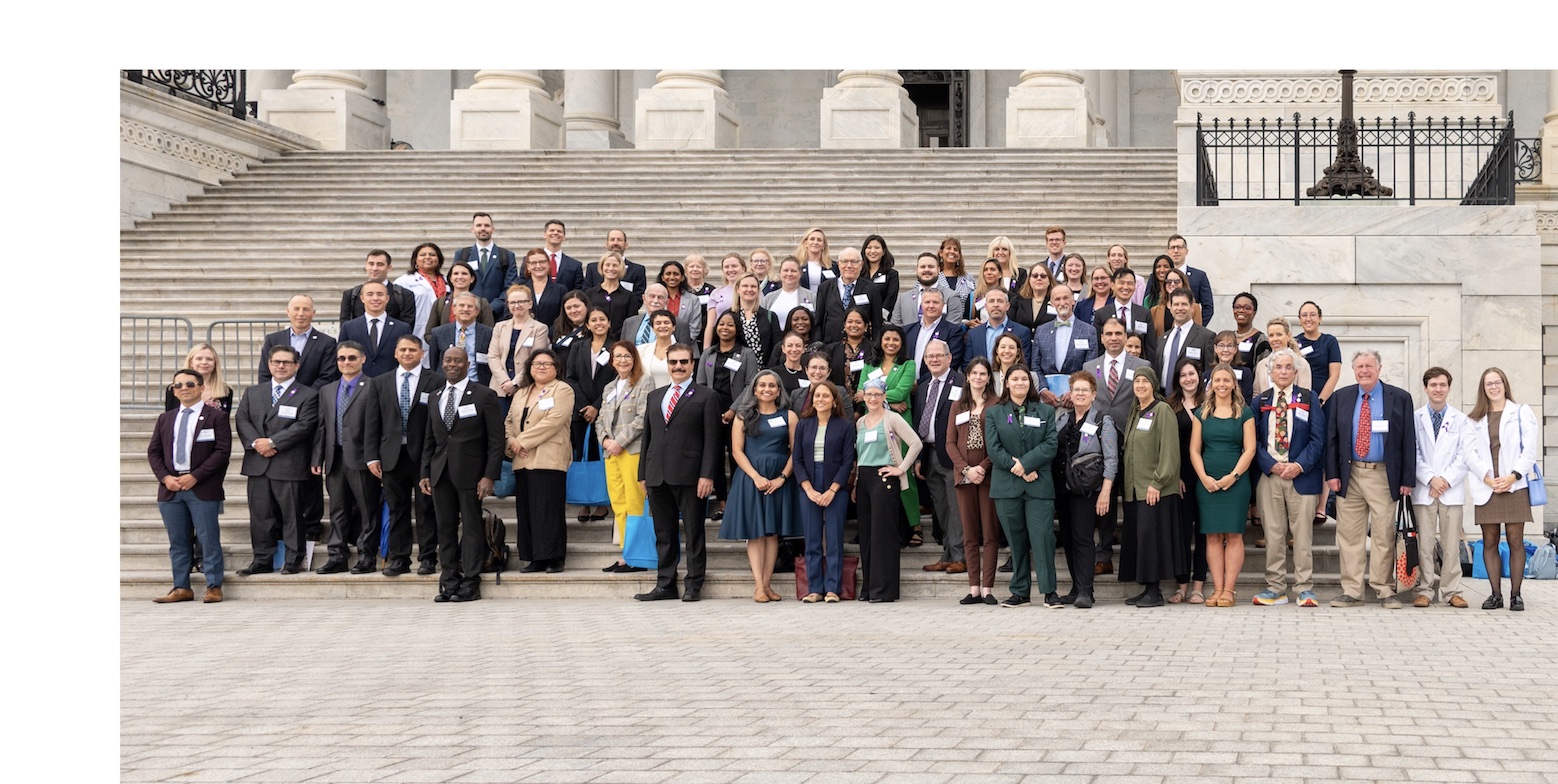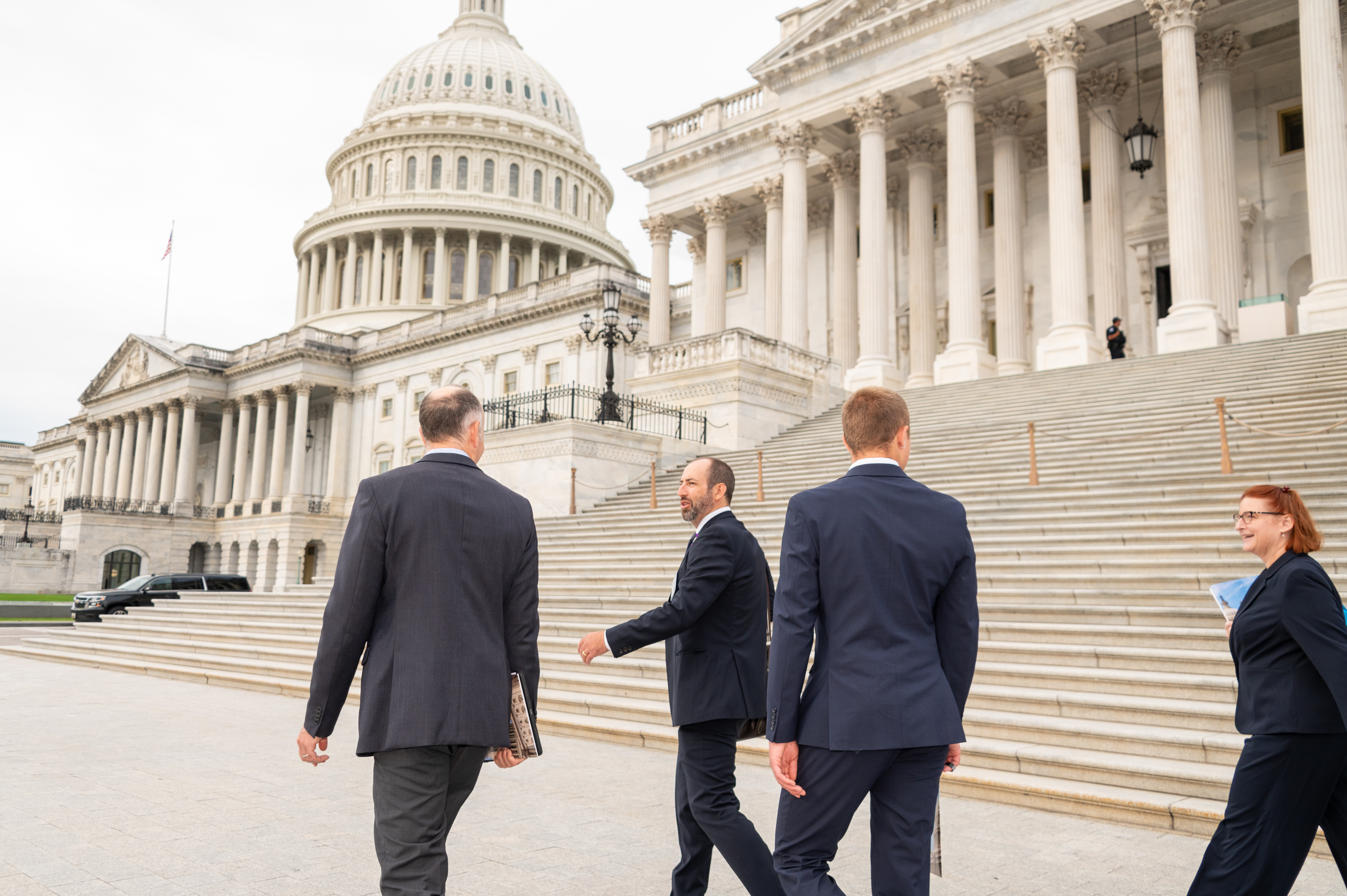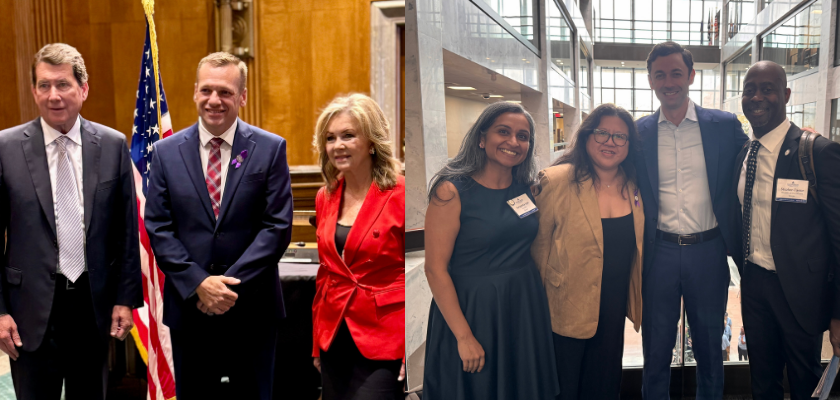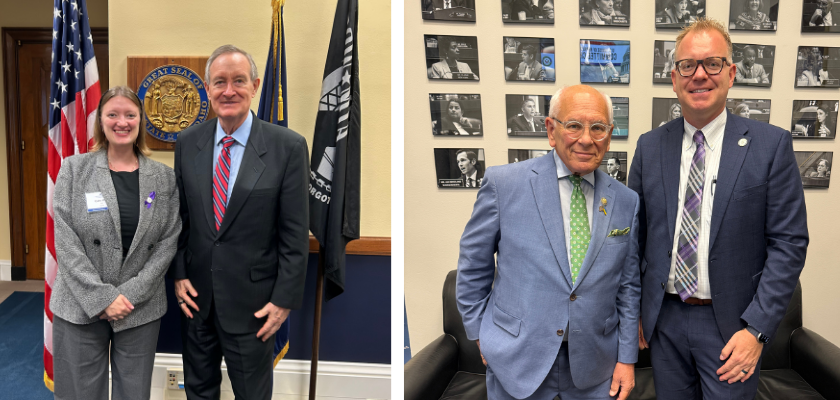News
ASAM Members Take on Capitol Hill to Advocate for Legislation to Advance Addiction Recovery

ASAM’s 2025 Addiction Medicine Advocacy Conference (AMAC) in Washington, D.C., September 16, 2025
Nearly 100 addiction medicine experts traveled to our nation’s capital to participate in ASAM’s 2025 Addiction Medicine Advocacy Conference (AMAC). The two-day event united addiction medicine clinicians and professionals to advocate for legislation to improve access to lifesaving addiction care and advance addiction recovery.
The ongoing addiction and overdose crisis continues to reach every corner of America. New data from SAMHSA shows that in 2024, 48.4 million people aged 12 or older had a substance use disorder in the past year, but only 5.9 million people (12%) received treatment. AMAC attendees represented 35 states, with groups flying in from as far as Alaska to urge their lawmakers to address this crisis and save lives.

Before heading off to Capitol Hill, attendees gathered for a day of advocacy training, networking, and learning. Throughout a series of panel discussions and interactive sessions, advocates examined the ongoing challenges at both the state and federal levels that hinder patient access to high-quality addiction care, as well as the legislative solutions to overcome them.
Specifically, AMAC 2025 advocates focused on advancing two key bills:
The Modernizing Opioid Treatment Access Act (MOTAA) (S.644 in the 118th Congress). MOTAA would allow board-certified addiction specialist physicians to prescribe methadone for OUD treatment that can be picked up by a patient at community pharmacies, subject to federal rules or guidance on supply of methadone for unsupervised use.
The Residential Recovery for Seniors Act (H.R.9232 / S. 4860 in the 118th Congress). This legislation would create a Medicare Part A benefit for residential addiction treatment programs that meet nationally recognized standards, categorized as Level 3.1: Clinically Managed Low-intensity Residential Treatment; Level 3.5: Clinically Managed High-intensity Residential Treatment, and/or Level 3.7: Medically Managed Residential Treatment. It would also establish a prospective payment system for these programs, ensuring that reimbursement for covered residential addiction treatment services is based on pre-determined, fixed amounts.
On day two, advocates took to Capitol Hill, where they met with 149 offices to urge them to support these bills and confront the ongoing addiction and overdose crisis. Many members spoke directly with their own lawmakers, sharing stories of how addiction continues to impact their state and local communities.

ASAM Tennessee advocate Dr. Chad Elkin with US Senators Marsha Blackburn and Bill Hagerty (left) and Georgia advocates Dr. Sangeeta Iyer, Dr. Dina Taarea, US Senator Jon Ossoff, and ASAM President Dr. Stephen Taylor (right).

It was a powerful opportunity to educate offices about the addiction treatment landscape, illustrate the challenges that limit patient access to addiction care, and advocate for the policy solutions patients and clinicians need.
What’s next?
AMAC advocates brought incredible energy to Capitol Hill – and we’re keeping the momentum going throughout the remainder of this year!
There are still countless opportunities to lend your voice to our advocacy efforts. Use our digital advocacy tool here to urge Congress to support legislation to advance addiction recovery.
